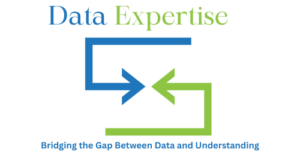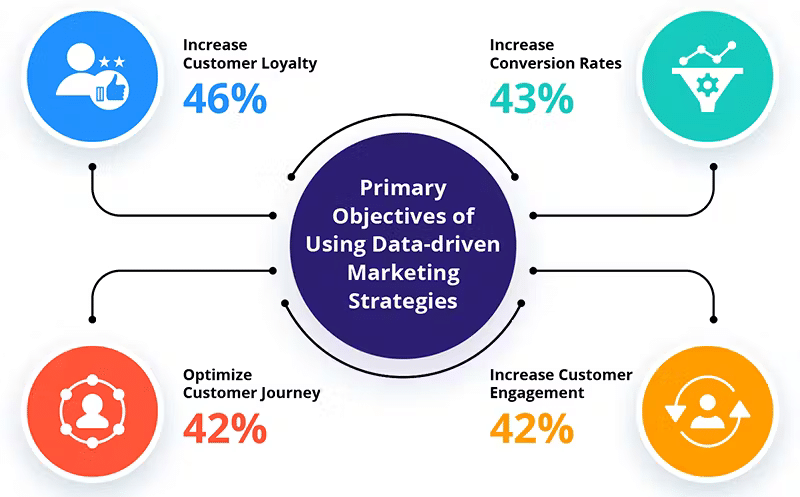Introduction
Welcome to our comprehensive guide on leveraging data analytics in marketing. This blog will explore how data analytics can be used to gain deeper insights into customer behavior, preferences, and trends, and how these insights can be translated into effective marketing strategies. We’ll cover various aspects of data analytics in marketing, from understanding customer segments to optimizing marketing campaigns, and provide real-world examples of how businesses have successfully leveraged data analytics to enhance their marketing efforts.
- Focus on Data Analytics in Marketing: Beyond collecting data to making informed decisions.
- Harnessing Customer Insights: The key to marketing success.
Understanding Customer Segments Through Data Analytics
One of the key strategies in data analytics for marketing is understanding and identifying different customer segments. By analyzing customer data, businesses can segment their audiences based on various criteria such as demographics, purchasing behavior, and preferences. This segmentation allows for more targeted and effective marketing campaigns. For example, a retail company might use data analytics to identify key customer segments and tailor its marketing strategies to each group, resulting in more personalized and effective campaigns.
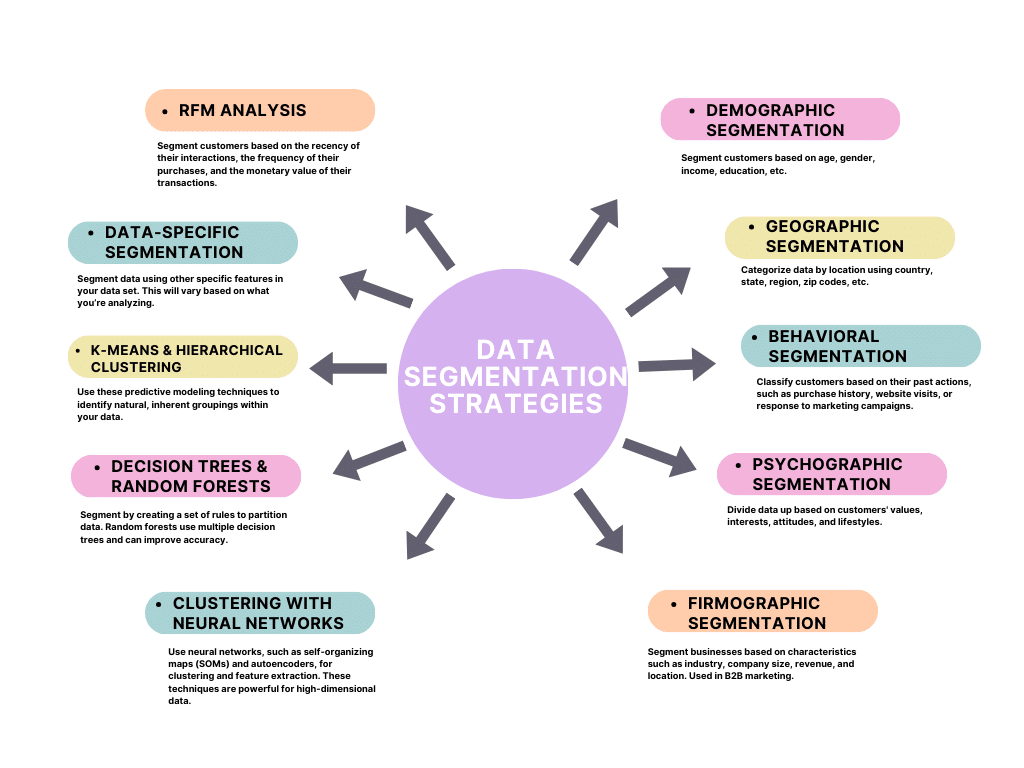
- Data-Driven Decision Making: Utilizing data analytics in marketing allows businesses to make informed decisions based on customer data rather than assumptions. This approach leads to more effective targeting and positioning strategies.
- Behavioral Insights: By analyzing customer interactions and feedback, businesses can uncover behavioral patterns, helping to predict future buying behaviors and preferences.
- Segment-Specific Strategies: With a clear understanding of different customer segments, companies can develop segment-specific strategies, including tailored product offerings and customized communication plans.
Segmentation is not just about dividing customers into groups; it’s about understanding the unique characteristics and needs of each segment. Data analytics enables marketers to gain deep insights into each segment, helping them to develop more relevant and appealing marketing messages. This approach not only improves customer engagement but also increases the efficiency of marketing resources by focusing efforts where they are most likely to yield results.
Optimizing Marketing Campaigns with Predictive Analytics
Predictive analytics is a powerful tool in the arsenal of data-driven marketing. It involves using historical data, statistical algorithms, and machine-learning techniques to identify the likelihood of future outcomes. Marketers can use predictive analytics to forecast customer responses or purchases, as well as to promote cross-selling opportunities. For instance, an e-commerce company might use predictive analytics to determine which products a customer is likely to purchase next, based on their browsing and purchase history, and then tailor its marketing messages accordingly.
- Forecasting Sales Trends: Predictive analytics can be used to forecast sales trends, helping businesses to anticipate demand and manage inventory more effectively.
- Customer Lifetime Value Prediction: By predicting the lifetime value of customers, businesses can focus their efforts on high-value segments, optimizing resource allocation.
- Churn Reduction: Predictive models can identify customers at risk of churning, enabling proactive engagement strategies to retain them.
The use of predictive analytics in marketing not only enhances the relevance of marketing campaigns but also helps in allocating marketing resources more effectively. By predicting which strategies are most likely to succeed, businesses can focus their efforts on the most promising campaigns, thereby maximizing the return on their marketing investment.
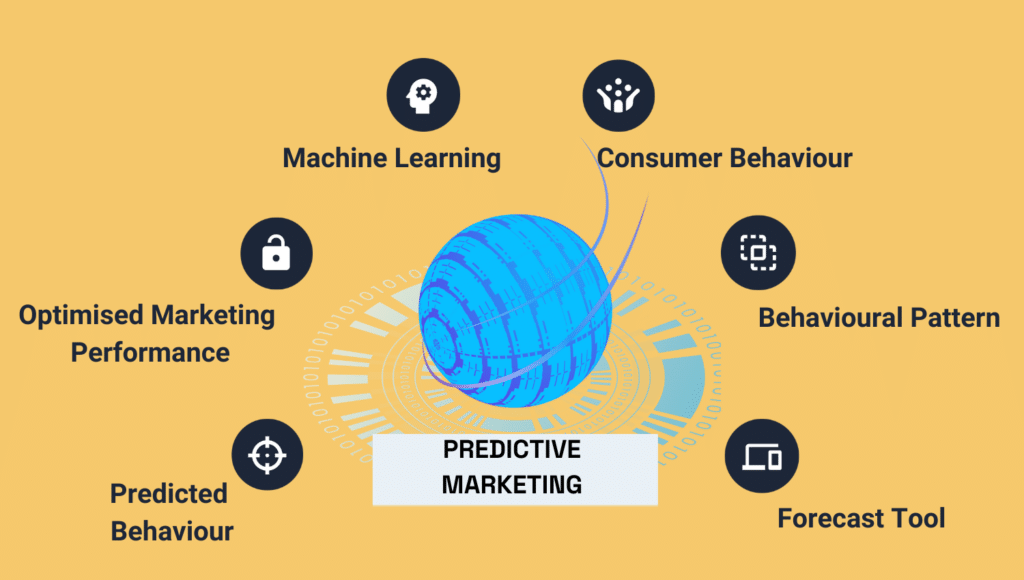
Enhancing Customer Experience with Personalization
Personalization is a key trend in modern marketing, and data analytics plays a crucial role in enabling personalized marketing strategies. By analyzing customer data, businesses can create personalized experiences for their customers, from customized emails to tailored website content. For example, a streaming service might use data analytics to recommend movies and TV shows based on a customer’s viewing history, thereby enhancing the customer’s experience and increasing engagement.
- Dynamic Content Delivery: Data analytics enables the delivery of dynamic content that adapts to user interactions, enhancing the relevance and engagement of marketing messages.
- Customized User Journeys: Analyzing customer data allows for the creation of customized user journeys on digital platforms, improving user experience and increasing conversion rates.
- Feedback Loop: Personalization strategies can be continuously refined by analyzing customer responses and feedback, creating a loop of improvement and adaptation.
Personalization not only improves the customer experience but also drives better marketing results. Customers are more likely to engage with content that is relevant and tailored to their interests, which can lead to increased loyalty and higher conversion rates. Data analytics provides the insights needed to create these personalized experiences, making it an essential tool for any marketer looking to enhance customer engagement.
Measuring and Analyzing Marketing Performance
Data analytics is also crucial for measuring and analyzing the performance of marketing campaigns. By tracking key performance indicators (KPIs) such as click-through rates, conversion rates, and customer acquisition costs, marketers can gain insights into the effectiveness of their campaigns and identify areas for improvement. For example, a digital marketing team might use data analytics to track the performance of different ad campaigns on social media, analyzing which ads are most effective in driving conversions and adjusting their strategy accordingly.
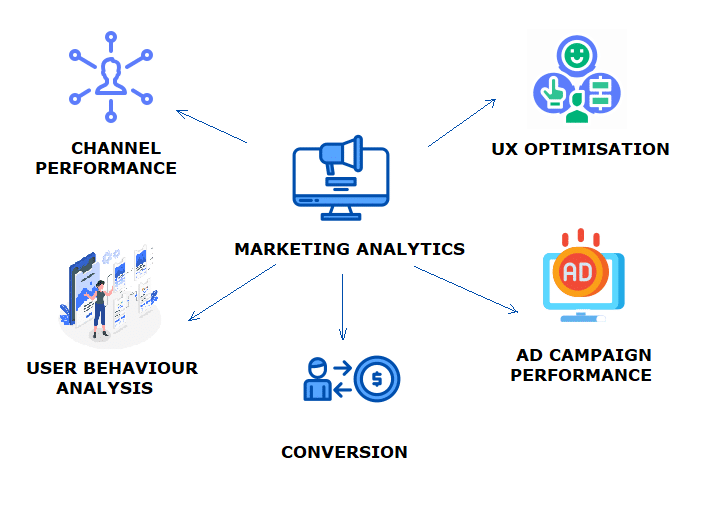
The ability to measure and analyze marketing performance is essential for continuous improvement. By understanding what works and what doesn’t, marketers can refine their strategies over time, leading to more effective and efficient marketing campaigns.
- ROI Analysis: Data analytics provides tools for an in-depth analysis of the return on investment (ROI) of marketing campaigns, helping to identify the most profitable channels and strategies.
- A/B Testing: Through A/B testing, marketers can scientifically test different campaign elements, from email subject lines to landing page designs, to determine what works best.
- Customer Journey Analytics: Analyzing the customer journey from first contact to purchase provides insights into the effectiveness of different touchpoints and the overall sales funnel.
Leveraging Social Media Analytics for Brand Insights
Social media analytics is another important aspect of data analytics in marketing. By analyzing data from social media platforms, businesses can gain insights into brand perception, customer sentiment, and emerging trends. This information can be used to inform marketing strategies, develop new products, and improve customer service. For example, a brand might use social media analytics to monitor customer feedback on its products, using this feedback to make improvements and address customer concerns.
Social media analytics provides a wealth of information about customers and the market, making it an invaluable tool for any marketer looking to stay ahead of the curve. By leveraging this data, businesses can make more informed decisions and develop strategies that resonate with their audience.
- Sentiment Analysis: Social media analytics tools can perform sentiment analysis to gauge public opinion about a brand, product, or campaign.
- Trend Spotting: By monitoring social media, businesses can spot emerging trends and adapt their strategies to stay relevant and competitive.
- Influencer Identification: Data analytics can help identify key influencers and opinion leaders in a brand’s domain, enabling targeted influencer marketing strategies.
Conclusion
In conclusion, data analytics is a powerful tool for marketers looking to gain deeper insights into their customers and optimize their marketing strategies. By leveraging data analytics, businesses can enhance customer engagement, personalize marketing efforts, measure and analyze performance, and stay ahead of market trends. As the field of marketing continues to evolve, the importance of data analytics will only grow, making it an essential skill for any marketer looking to succeed in the digital age.
